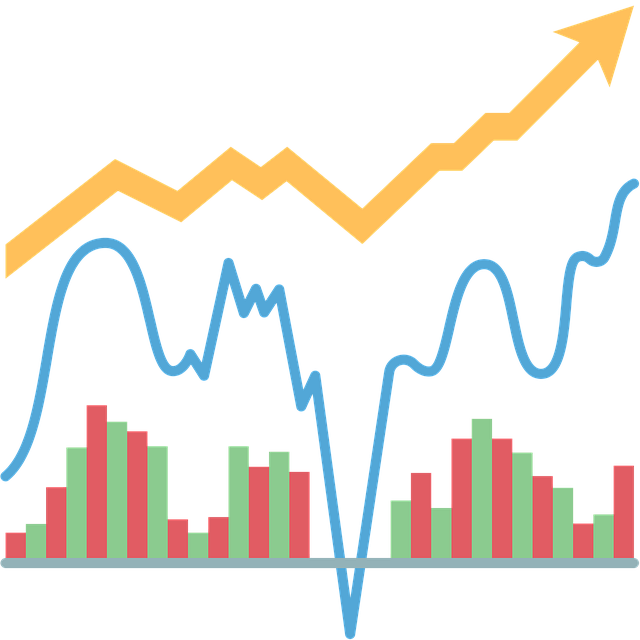If you’re new to the world of trading, it can be difficult to know where to start.
Two of the most popular markets for traders are forex and stocks.
Although they may seem similar at first glance, there are significant differences between the two that every trader should understand before deciding which market is right for them.
Forex, or foreign exchange trading, involves buying and selling currencies from around the world.
On the other hand, stock trading involves buying and selling shares of individual companies.
In this article, we’ll explore 5 key differences between forex and stock trading that every aspiring trader should know.
By understanding these differences, you’ll be better equipped to decide which market aligns with your goals and risk tolerance.
Market Size And Liquidity
 Like a vast ocean with unpredictable tides, the foreign exchange market is a behemoth in terms of size and liquidity.
Like a vast ocean with unpredictable tides, the foreign exchange market is a behemoth in terms of size and liquidity.
The forex market dwarfs the stock market, with an average daily trading volume of around $5 trillion. This sheer volume means that traders can easily buy and sell currencies at any time without worrying about affecting the exchange rate.
On the other hand, the stock market operates in a different manner. While it may seem large to some, with an average daily trading volume of $200 billion, it pales in comparison to its forex counterpart.
Additionally, stocks are subject to bid-ask spreads – the difference between the buying and selling price – which can impact profitability.
This immense size and liquidity of the forex market provides traders with greater flexibility and opportunity compared to stock trading. With less risk of price manipulation and wider availability of buyers and sellers, forex trading allows for quicker execution of trades at more favorable prices.
Trading Hours And Accessibility
One of the key differences between forex and stock trading is the accessibility of the markets. Forex trading is accessible 24 hours a day, five days a week, allowing traders to participate in the market at any time. This flexibility allows traders to adjust their schedules around their other commitments while still being able to trade.
In contrast, stock trading operates on a strict schedule, typically from 9:30 am to 4:00 pm EST, Monday through Friday. The benefits of forex trading are evident when it comes to accessibility. Because the forex market is open 24 hours a day, traders have greater flexibility in terms of when they can trade. This means that traders can respond quickly to changes in the market and take advantage of opportunities as they arise. Additionally, because the forex market is global, there are always buyers and sellers available at all times.
When it comes to comparison of forex and stock trading platforms, ease of use is crucial. Forex trading platforms tend to be more user-friendly than stock trading platforms because they are designed for retail investors rather than institutional investors. Furthermore, forex brokers often offer demo accounts that allow traders to practice with virtual money before risking real capital. This gives traders an opportunity to get comfortable with the platform before investing real money.
Overall, while both forex and stock trading have their advantages and disadvantages in terms of accessibility, it’s clear that forex has some distinct benefits over stock trading when it comes to flexibility and ease-of-use. With its 24/5 schedule and user-friendly platforms, forex is an excellent option for those looking for a more accessible way to invest their money.
Volatility And Risk
Now that we’ve discussed the trading hours and accessibility of forex and stock trading, let’s dive into another important aspect – volatility and risk.
When it comes to these two factors, forex and stock trading couldn’t be more different.
For starters, the impact of news on forex is much greater than on stocks. This is because currencies are deeply intertwined with global events such as political decisions, economic data releases, and natural disasters. Any unexpected news can cause a ripple effect throughout the entire forex market, resulting in sudden price movements that can either work for or against traders.
Moreover, psychological factors also play a significant role in forex trading. Unlike stocks where companies have a tangible value based on their assets and profits, currencies are purely based on market perception. As such, investor sentiment can cause extreme fluctuations in currency prices. Fear and greed are powerful emotions that can sway even the most experienced traders to make impulsive decisions that could result in huge losses.
In summary, while both forex and stock trading carry inherent risks, forex is generally considered to be more volatile due to its sensitivity to global events and psychological factors. Traders must always stay up-to-date with the latest news developments and keep their emotions in check to succeed in this highly dynamic market.
Fundamental Vs. Technical Analysis
It is important to understand the key differences between fundamental and technical analysis when it comes to forex and stock trading. While both methods involve analyzing data to make predictions about future market trends, they approach this task from different angles.
Fundamental analysis focuses on macroeconomic factors like news impact and economic indicators. Essentially, this method involves looking at the underlying forces that drive market movements. For example, a trader using fundamental analysis might look at a country’s GDP growth rate or interest rates to predict how their currency will perform in the short and long term. Similarly, a stock trader might look at a company’s financial statements, earnings reports, and industry trends to identify potential opportunities.
Technical analysis, on the other hand, relies more heavily on chart patterns and statistical indicators. This method involves looking at historical price data to identify trends that can be used to predict future movements. Technical analysts might use tools like moving averages or Bollinger Bands to spot patterns in price movement that indicate buying or selling opportunities.
While both methods have their strengths and weaknesses, successful traders often incorporate elements of both into their strategies. By combining fundamental analysis with technical indicators, traders can gain a more complete understanding of market trends and make more informed decisions about when to buy or sell assets.
Ultimately, the key is to find an approach that works best for your individual goals and risk tolerance levels.
Leverage And Margin Requirements
Imagine a tightrope walker crossing a high wire without any safety net below. The audience is awestruck by the performer’s agility and balance, but also feels anxious about the possibility of a fall.
This image can help explain one of the key differences between forex and stock trading: leverage and margin requirements. Leverage refers to the use of borrowed funds to increase the potential returns on an investment. In forex trading, brokers often offer high leverage ratios, such as 100:1 or even 500:1, which means that traders can control large positions with relatively small amounts of capital. However, this also means that losses can be magnified in the same proportion.
Stock trading, on the other hand, usually has lower leverage ratios due to regulations and market conditions. Margin requirements are closely related to leverage, as they determine how much money traders need to put up as collateral for their positions. Forex brokers require margin deposits that are only a fraction of the total value of trades, which again allows for higher leverage but also increases risk exposure.
Stock brokers may also require margin accounts for some types of trades, but generally have stricter rules and higher deposit requirements. Trading strategies and risk management techniques are crucial for both forex and stock traders who want to succeed in the long term. While leverage and margin can offer opportunities for profit, they should always be used with caution and discipline.
Knowing when to cut losses and take profits is essential, as well as diversifying your portfolio and using stop-loss orders. Ultimately, successful trading requires a balance between risk appetite and risk mitigation.
Frequently Asked Questions
What Are The Main Differences In Terms Of Trading Strategies Between Forex And Stock Trading?
When it comes to trading strategies, there are significant differences between forex and stock trading.
One of the biggest contrasts is the focus on long-term versus short-term trading.
In forex, traders typically operate with a short-term mindset, while in stocks, investors often take a more long-term approach.
Another key difference lies in the types of analysis used by traders.
Forex traders often rely heavily on technical analysis to make decisions, while stock traders may use a combination of technical and fundamental analysis.
Ultimately, understanding these differences is crucial for any investor looking to navigate either market successfully.
Which Market Is More Suitable For Beginner Traders, Forex Or Stocks?
While some beginner traders may feel overwhelmed by the complexities of both forex and stock trading, it’s important to weigh the advantages and disadvantages of each market.
Forex trading offers higher leverage and potentially greater profit potential, but it also comes with a higher level of risk.
On the other hand, stock trading may be more stable and easier to understand, but may offer lower returns.
My recommendation for beginner traders would be to start with stock trading before venturing into forex.
While the potential for profit may not be as high, it allows for a better understanding of market dynamics and risk management.
Ultimately, each trader must assess their own risk tolerance and choose the market that best aligns with their individual goals and strategies.
Are There Any Specific Regulatory Differences Between Forex And Stock Trading?
When it comes to regulatory requirements and investor protection, there are some distinct differences between forex and stock trading.
In the United States, for example, forex brokers must be registered with the Commodity Futures Trading Commission (CFTC) as a Futures Commission Merchant (FCM), while stock brokers must be registered with the Securities and Exchange Commission (SEC).
Additionally, forex trading is typically subject to higher leverage limits than stock trading, which can increase both potential profits and losses.
However, both markets aim to protect investors through various regulations and oversight measures, such as requiring financial disclosures from companies and enforcing strict anti-fraud laws.
It’s important to understand these regulatory differences in order to make informed decisions about which market may be best suited for your particular goals and risk tolerance.
How Do Geopolitical Events Affect Forex And Stock Markets Differently?
When it comes to the impact of news and geopolitical events, forex and stock markets can react quite differently. I’ve found that while stock prices may fluctuate in response to breaking news, forex traders tend to analyze price movements more closely before making any major moves.
One idiom that comes to mind is ‘look before you leap.’ Forex traders are known for their caution when it comes to reacting too quickly to unexpected news, preferring instead to take a more measured approach.
In contrast, stock traders may be more likely to jump on breaking news without fully considering the potential consequences. While both markets are subject to external factors beyond their control, it’s important for investors to understand how these different approaches can affect their trading strategies.
Can You Trade Both Forex And Stocks At The Same Time, Or Do You Need To Choose One Over The Other?
It is important to understand the benefits of diversification when trading both forex and stocks simultaneously.
Diversifying your portfolio can help mitigate potential risks associated with trading both markets at the same time.
However, it’s important to note that trading in multiple markets requires a significant amount of time, effort, and expertise.
Therefore, it’s crucial to have a clear strategy in place and be able to manage your risk effectively.
Ultimately, whether you choose to trade both forex and stocks or focus on one market depends on your personal preferences, level of experience, and investment goals.
Conclusion
In conclusion, it is important to understand the key differences between forex and stock trading.
While both markets offer potential for profit, they require different trading strategies due to their unique characteristics.
For beginner traders, starting with forex may be more suitable due to its high liquidity and availability of leverage. However, regulatory differences between the two markets should also be considered.
Geopolitical events can affect both forex and stock markets, but in different ways. Forex tends to be more sensitive to global economic news while stocks are more affected by company-specific news.
Ultimately, whether you choose to trade forex or stocks depends on your individual goals and preferences. It is possible to trade both simultaneously, but it requires a solid understanding of each market’s nuances.
As always, proper research and risk management are key components of successful trading in either market.








